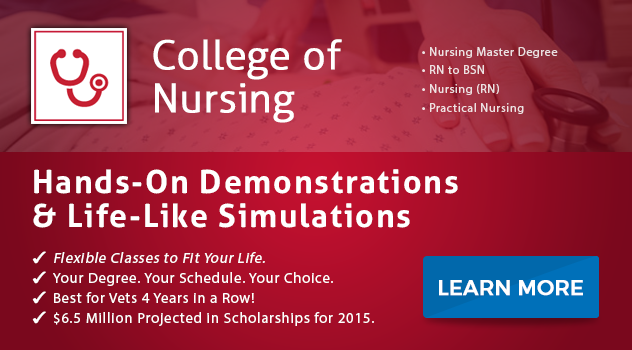Why Are Nurses Important to the Community?
It might seem as if registered nurses are confined the emergency room and have little impact on those not currently ill and seeking medical care. But nothing could be further from the truth. First of all, nurses aren’t limited to only working in hospitals. They can work in schools, clinics, private homes, and assisted living facilities. They also specialize in different areas such as midwifery, cardiac care, geriatrics, family practice, labor, and delivery.
Due to the interconnected nature of our modern existence, we are all affected by the help and care nurses administer. A nurse who helps save a family member’s life impacts you as well as your family member. Without nurses, everyday medicine would cease to exist. And that would have a grave impact on all of us.
Duties of a Registered Nurse
The duties of a registered nurse vary depending mostly on the healthcare setting. However, most registered nurses consult with other healthcare providers, administer medication, educate families and individuals, monitor patients, and manage medical records. Registered nurses should also stay up-to-date with the newest technology to ensure that they are providing the best care to patients and support to other healthcare providers.
How Formal Education can Help you Become a Nurse
Other than taking care of patients, as a registered nurse, you can attain leadership positions. Additionally, you can also focus in one of the nursing specialties. Apart from medical duties, registered nurses require a combination of soft skills including teamwork, excellent communication, critical-thinking, decision-making, and problem-solving skills.
Nursing Job Settings
Curious about where you might fit in as a registered nurse? Here are some different settings where RNs are commonly employed. Which one is the right setting for you?
Intensive Care
Intensive care or critical care involves the treatment of patients who are suffering from critical or life-threatening conditions and need constant care. Qualified nurses helping patients that are in need of intensive care may have the titles NICU (neonatal intensive care unit) nurse, ICU nurse or trauma nurse. These professionals are very important as they are tasked with the responsibilities of inserting life-saving IVs, caring for dying patients, and educating families on how to take care of loved ones with brain injuries and on life support.
Hospitals
Working in hospitals is what often comes to mind when people think of nursing. According to a 2014 BLS report, 61% of registered nurses were working in hospitals. Some of the types of registered nurses you’ll find in hospitals include nurse managers, cardiac care nurses, labor and delivery nurses, and perioperative nurses. Because hospitals don’t have business hours, nurses may have to work long shifts, during weekends and holidays.
Clinics
These nurses report to work before doctors to set up the clinic by checking the ophthalmoscope, getting the exam tables and charts ready, and turning on the computers. After patients meet with the doctor, the clinic nurses conduct all the other follow-up tests such as x-rays and MRIs. Registered nurses working in clinics take care of patients with non-life-threatening injuries.
Ambulatory Care
Ambulatory care nurses are those nurses that take care of patients outside a hospital environment. These can include rehabilitation centers, outpatient facilities, home hospice and same-day surgery centers. Examples of nurses working in such an environment include dialysis nurses, and palliative care nurses. Ambulatory care health nurses can include both generalist and specialist nurses.
Is Nursing a Good Fit for You?
Let’s face it, nursing isn’t for everyone. But in the midst of it all, lives are saved, babies are born, and life-long bonds are formed between patients and the medical staff. Nursing is both essential and multi-faceted. Nursing is a good fit for you if:
- You are emotionally mature
- You can prioritize your time
- You’re passionate about improving other people’s health
- You’re not afraid of working in a healthcare environment
- You’re motivated to make a difference
- You can apply what you learn
- You want to join an industry with solid growth potential
Nursing: A Work of Heart
Have you always wanted to make a difference in your community? If you want to help others while working in a medical facility, you might be cut out to earn an Associate of Applied Science Degree in Nursing. ECPI University offers this program at an accelerated rate. Helping to minimize time in the classroom and maximize time caring for potential patients. For more information about this exciting degree program, connect with a helpful admissions representative today.
It could be the Best Decision You Ever Make!
DISCLAIMER – ECPI University makes no claim, warranty, or guarantee as to actual employability or earning potential to current, past or future students or graduates of any educational program we offer. The ECPI University website is published for informational purposes only. Every effort is made to ensure the accuracy of information contained on the ECPI.edu domain; however, no warranty of accuracy is made. No contractual rights, either expressed or implied, are created by its content.
For more information about ECPI University or any of our programs click here: http://www.ecpi.edu/ or http://ow.ly/Ca1ya.





